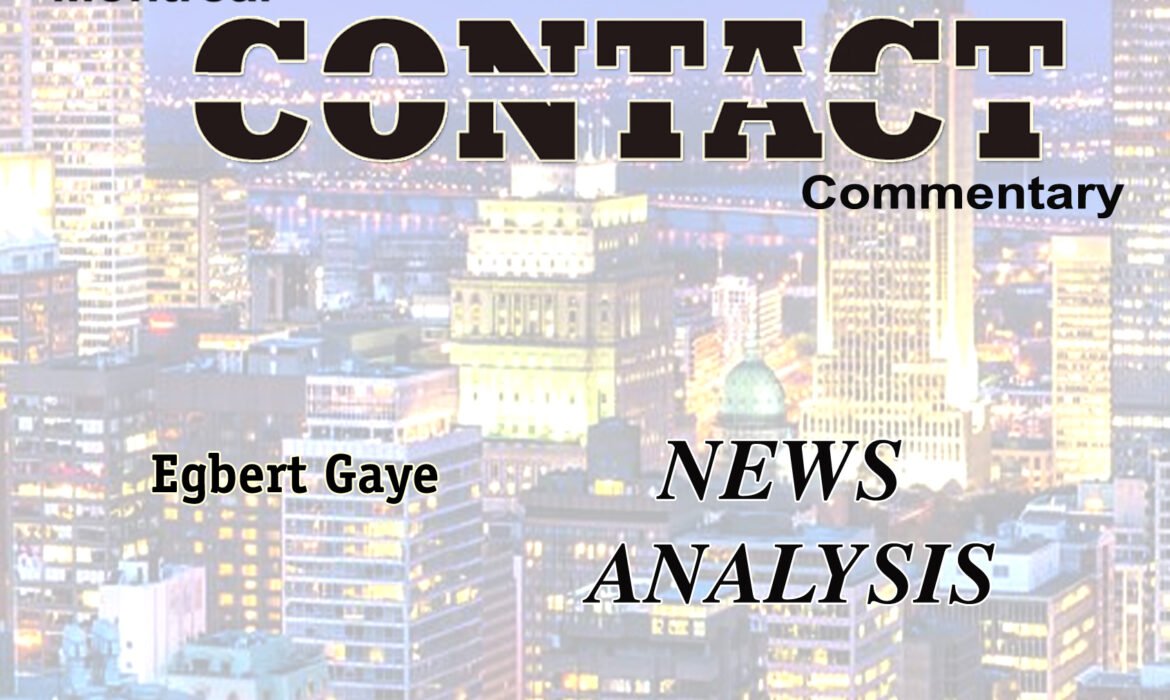Historian Dorothy Williams once described Montreal’s Black community as “a vibrant, multicultural, multilingual consisting of Blacks from Africa, Europe, the Caribbean, Canada and Latin America.”
She went on say that the community has deep roots in Montreal going back to coming of the first French explorers and has defied the stereotypes of “being among Canada’s uneducated immigrants, lacking motivation, poverty driven and feeding off the system.”
Upon entry, she writes, Blacks have been among Canada’s most educated” but struggled to find an environment that is home, that is safe and enduring.”
The challenge for generations of Blacks coming of age in Quebec has been to make the province and Canada a better place.
To do so, they depended on the services delivered by a spectrum of organizations and groups that grew out of the community across Montreal.
Institutions such as Union United Church, the Negro Community Centre, the Black Community Council of Quebec and its various neighbourhood organizations in NDG, LaSalle and Cote des Neiges provided young Blacks with mentors and trainers to nurture and groom their aspirations and talent.
They were also significant as a stabilizing force for the community especially the English speaking sector, in the face of Quebec racism. As well, the organizations served as a protective and supporting force to buoy Black and Caribbean people whose collective development and growth were stunted by systemic barriers.
In the face of the mnay obstacles, it’s not surprising that the Black community that took it upon itself to lead the fight against discrimination and the struggle for human rights in this province.
And as such, the history of race relations in Quebec is replete with evidence of the many instances that Blacks were forced to stand against social injustices, moving the Sir George Williams after to the many modern manifestations against police brutality.
In addition to Union United Church, the Universal Negro Improvement Association and the NCC, the Negro Citizenship Association (NCA) stands among the earliest of organizations that stood on guard for the Black community, especially for its role in many landmark struggles.
The NCA was founded in 1951 by Donald William Moore, who emigrated from Barbados in the early 1900s first to the US, then Montreal and finally to Toronto.
He earned national attention in 1954 when as president of the NCA he organized a Canada-wide delegation of about 35 people that included members of the Sleeping Car Porters’ union and community activists to travel to Ottawa to meet with the Canadian government to discuss the country’s discriminatory immigration policies that basically barred Blacks and other visible minorities from immigrating to Canada.
Although that seminal meeting didn’t provoke immediate change, it helped to shape seismic change in Canada’s immigration laws and initiated the West Indian Domestic Scheme that brought more than 3000 women from across the Caribbean to Canada between 1955 and 1968.
In Montreal, the NCA was driven by corps of community stalwarts some who were Americans, West Indians and Canadians including Preston Jennings, Richard Leslie, Arthur Westmoreland, Arthur Blanchette, Dorothy Wills and Ivyline Flemming.
In 1964, the association placed itself front and centre of the social justice debate in Canada when it spearheaded the Gloria Baylis legal challenge against Hilton Canada Hotel Chain for refusing employment on the basis of race.
In the case, the chain’s Montreal subsidiary The Queen Elizabeth Hotel refused Baylis’s application for a part time nursing position saying that it was filled, only to applications from her white friends a few days later.
The initial judgement found the hotel guilty of discrimination, but it was appealed to the Supreme Court. The NCA saw the legal challenge through to the end in 1977 when the hotel was forced to pay the fine of $25 plus cost.
The Negro Citizenship Association also figured prominently in integrating Montreal’s taxi industry which in the early 1960s was almost exclusively white.
Only one company at the time had what was considered a legal obligation to hire minorities, which was Veteran’s Taxi because it federal government funding went into its establishment.
The NCA launched challenges against two of the bigger companies, Diamond Taxi and LaSalle Taxi to open their ranks to Blacks but met on-going resistance.
The association went on to advocate to the three levels of government but it took direct action on the part of the president, Richard Leslie to use his university credentials to secure a taxi permit then a job at Diamond Taxi followed by employment at LaSalle.
His bold and selfless move to sacrifice his personal professional advancement opened the doors of the industry to other Black drivers.
The early dismantling of systemic barriers by the Negro Citizenship Association and our other frontline organizations has been a significant achievement for Blacks and it played a vital role in helping Canada build its profile of a fair and just society.
The Black man’s burden

















1 Comment
Honouring Egbert Gaye October 5, 2024 at 10:14 pm
[…] Opinions such as “Premier Francois Legault has mastered the politics of division”, “The Black man’s burden”, “About Haiti and Haitians and US presidents” and “The thing about the Black […]